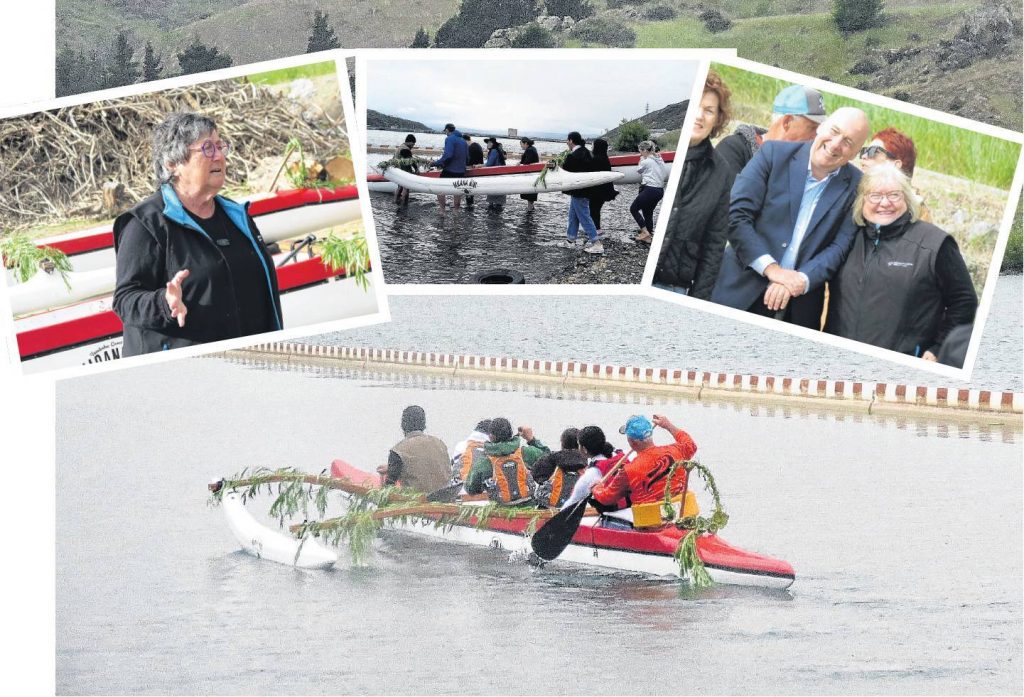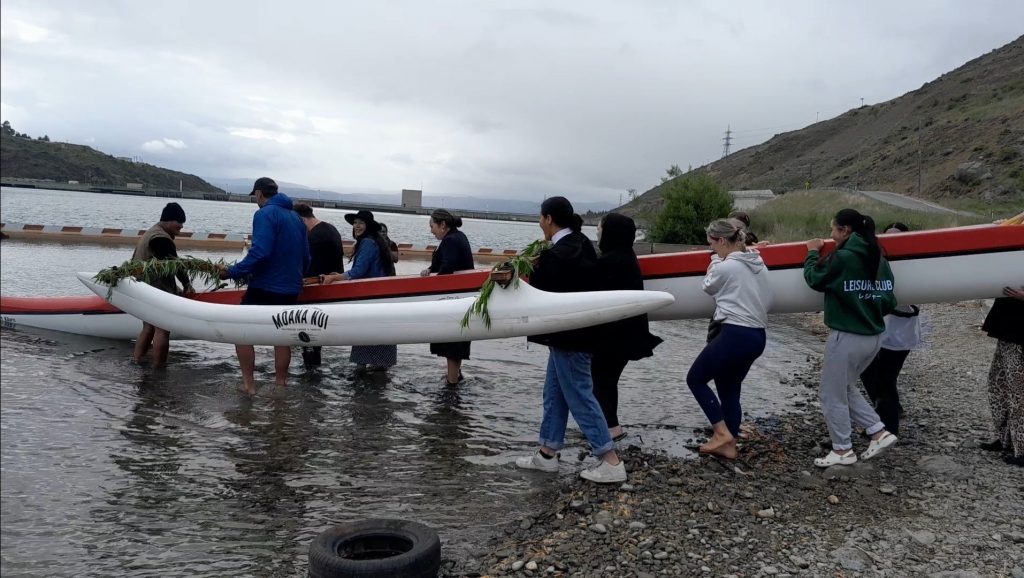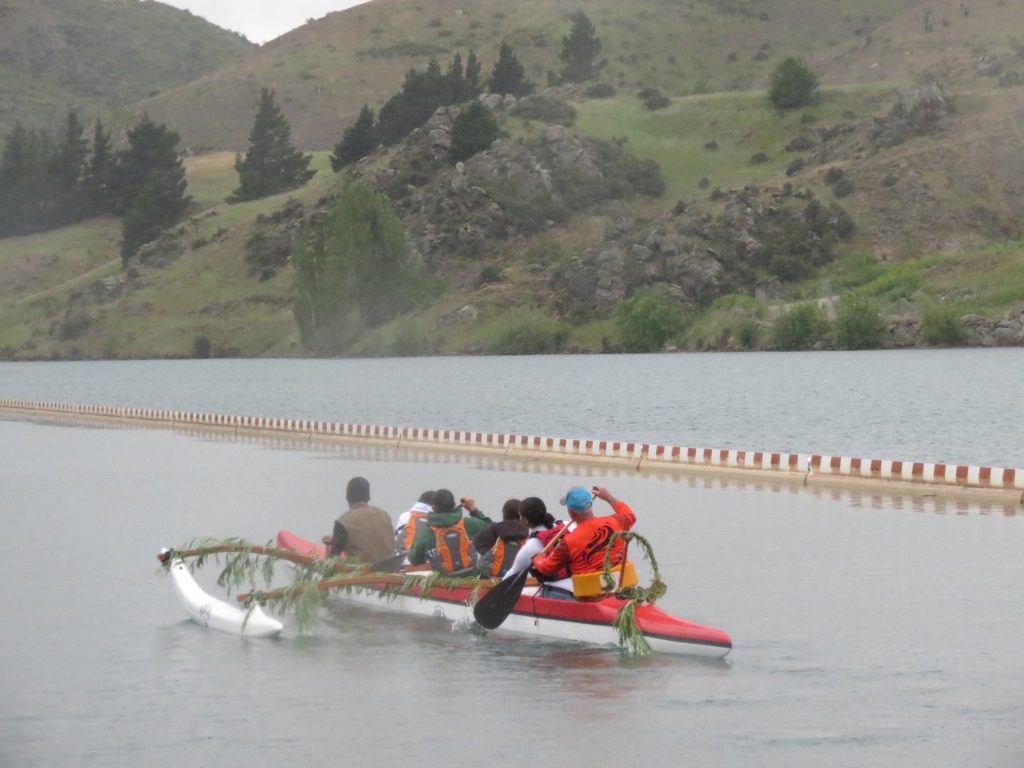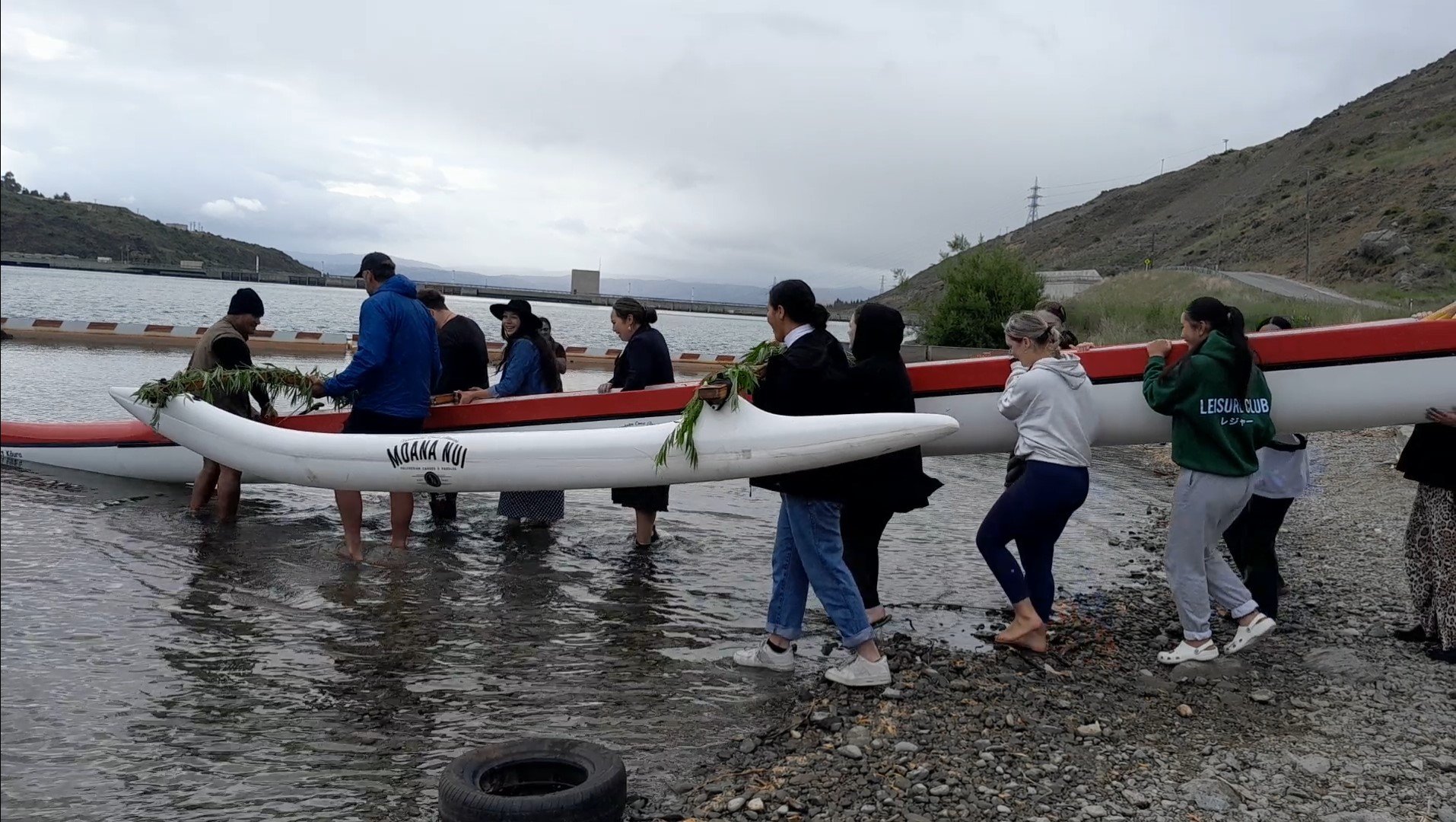Two newly-blessed waka ama will provide an opportunity for Central Otago residents to engage in Maori culture while also honing their teamwork skills and physical fitness.
A blessing of the waka ama was conducted on the shores of Lake Dunstan on Friday morning, accompanied by waiata and karakia.
About 50 people were present as two six-seater waka ama, named Sweet Koura and Tuna kuwharuwharu, were carried into the lake.
Waka ama — comprised of a canoe (waka) and an outrigger (ama) to stabilise the vessel — are the traditional mode of transport in the Pacific Islands.
A national body for the sport, Waka Ama New Zealand, was established in 1987 and the sport has since grown rapidly, particularly in secondary schools.

Uruuruwhenua Health kaiwhakahaere/chief executive Mel Kuiti said seeing the waka ama on the water was ‘‘beautiful’’.
‘‘It meant a lot . . .I know what it means to the community and all of the people who are really keen to get in there.’’
Securing waka ama had been a goal of the organisation for some time but costs were a major barrier, she said.
This year, Uruuruwhenua Health were approached by Dunstan High School, who were also interested in establishing a waka ama programme. ‘‘We got to turn from page one together and made a bit of a plan about what the needs were,’’ Ms Kuiti said.
A programme was created for high school pupils who could receive NCEA credits through waka ama, she said.
‘‘We want to take them through water safety, we’ll do a tip procedure . . .make sure everybody can swim confidently in a life jacket fully clothed.
‘‘We’ll take them through the tikanga from a te ao Maori perspective.’’
Connecting to water was a spiritual experience for Maori, she said.
While there was a focus on young people using the waka ama, they were a resource for all people, she said.
‘‘There are a lot of rangatahi [young people] who can benefit but I can see it benefiting the whole community.
‘‘I think it’s really just going to bloom from here.’’

The waka ama were funded by Sport New Zealand’s Tu Manawa Active Aotearoa, which supports programmes delivering sport activities for children and youth.
A grant from Te Puni Kokiri — Ministry of Maori Development was used to develop the programme, establish coordinator roles, and secure a life jackets and paddles.
Waka ama co-coordinator Grant Olds said waka ama was a multigenerational sport with wide-ranging appeal, both competitively and socially.
‘‘It’s a good alternative sport for people who don’t fit mainstream sport.’’
Waka ama was also suitable for those who have transitioned out of other sports due to injury, he said.
‘‘[It is] more a culture than a sport. Waka ama is [about] looking after ourselves, our bodies and our equipment.’’
Fellow co-coordinator Henry Heather said getting the waka ama blessed and on the water was a great first step to getting people into the sport.
‘‘That’s the start of our journey together, for Uruuruwhenua and for Grant and I.’’

Waka ama brought together a lot of traditional and cultural knowledge such as reading the weather and water conditions.
‘‘Getting our young people that opportunity to learn that sort of stuff — I think that comes into play with waka ama,’’ Mr Heather said.
Teamwork was vital to the sport, he said. ‘‘At the end of the day, when you’ve got six people in the boat, you actually want them to all work together.
‘‘If it’s not going to work, then you’re not going to go anywhere.’’
In the future, he would like to see high school pupils compete in national competitions.
‘‘There are pathways . . .in New Zealand and then you can go overseas and compete.’’
Waka ama has taken him to lakes, rivers and seas throughout New Zealand, he said.
‘‘I got the opportunity to go to a lot of these places I’ve never been before.’’
Uruuruwhenua Health are seeking expressions of interest for involvement in waka ama. These should be directed to [email protected].





